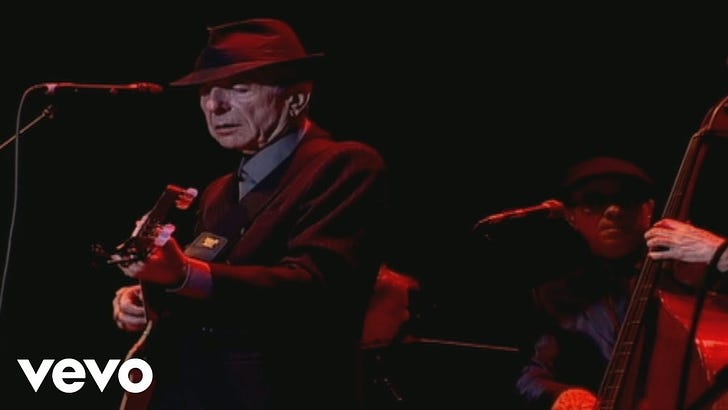LEONARD COHEN: 'MY SPIRITUAL AMBITIONS ARE QUITE MODEST'
The long lost part two of a 1992 interview
This part of my interview with Leonard Cohen has never been published. It took place Nov. 12, 1992, in his suite at the Righa Royal Hotel in Manhattan. The topic was his then new album The Future, the album that changed the way I listened to this visionary singer-songwriter. Its apocalyptic visions seemed to confirm what Cohen called the "inner catastrophes" we had both internalized. In the earlier post, he said something like, "So you're shattered; we're all shattered!"
That part of the interview was so rich, there was so much to talk about in each song, and Cohen was so typically articulate, that it formed the entirety of a feature story for my column in Newsday and New York Newsday, and the Q&A that appeared on my Substack on March 16, 2022. https://waynerobins.substack.com/p/leonard-cohen-sees-the-future
A few days ago, I found a folder with more transcribed material from that interview: It was like an entirely different conversation. The "new project, The Future album, had been tho…
Keep reading with a 7-day free trial
Subscribe to Critical Conditions by Wayne Robins to keep reading this post and get 7 days of free access to the full post archives.



